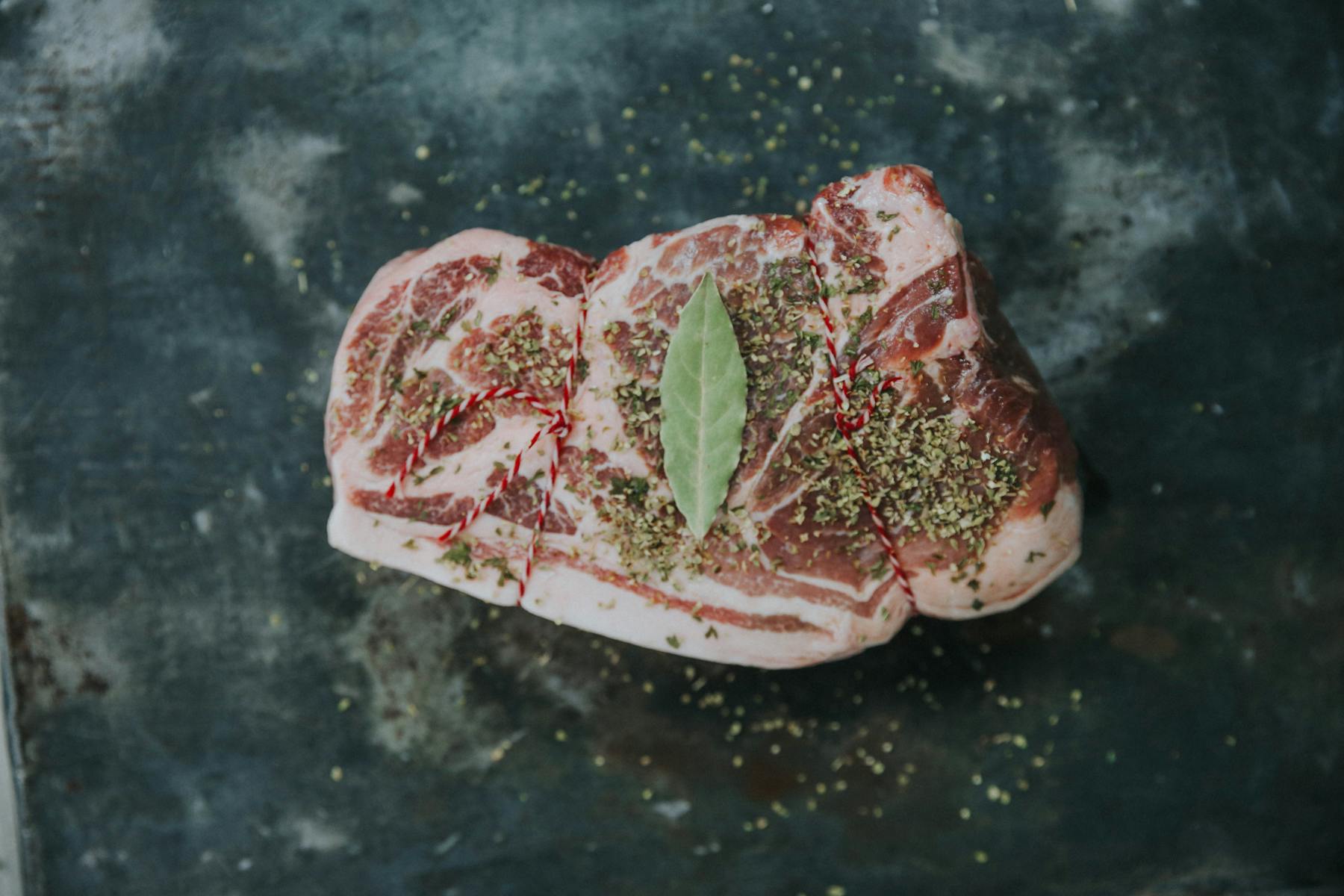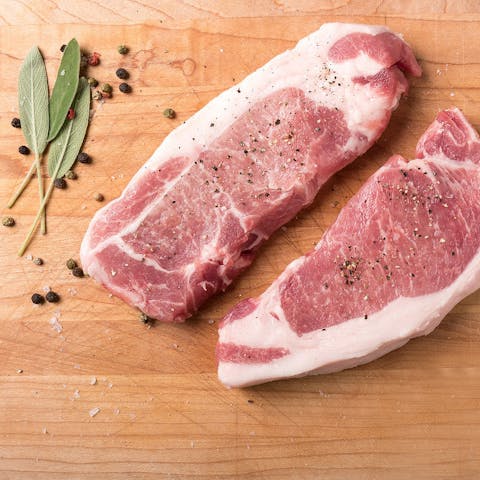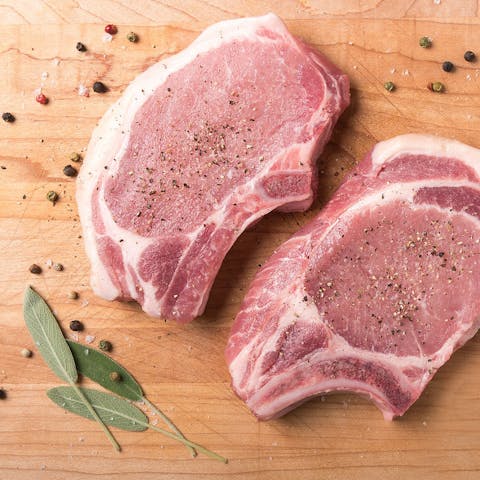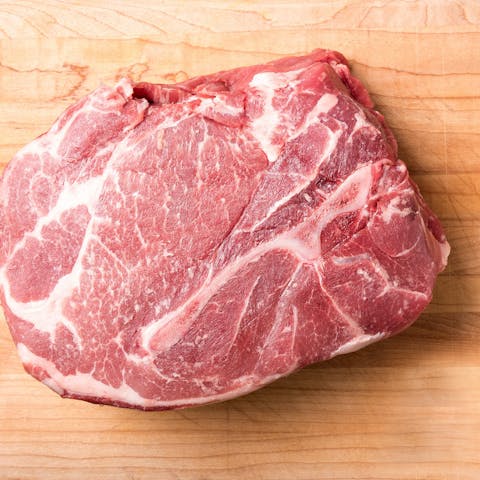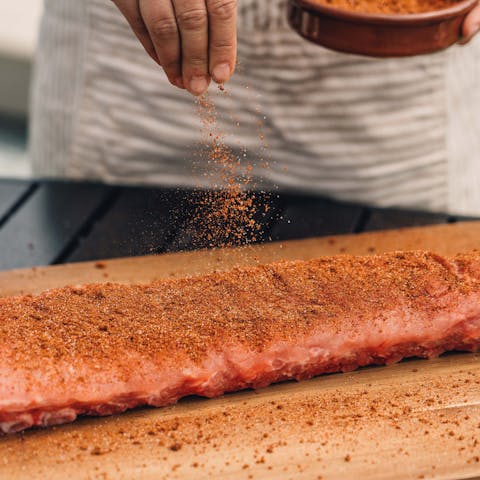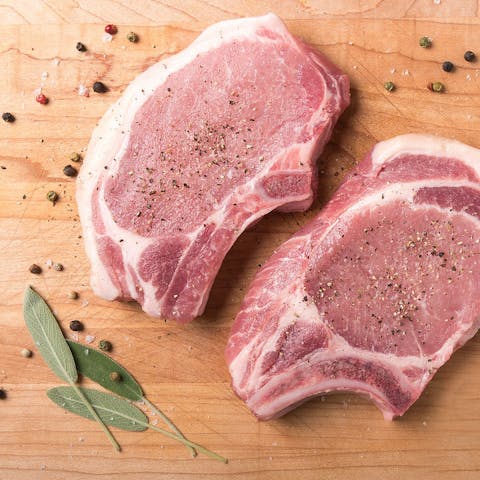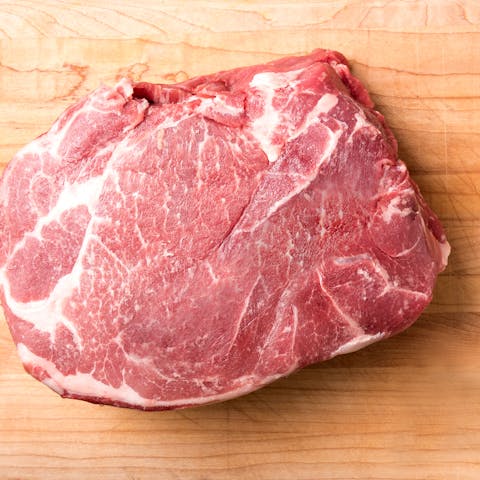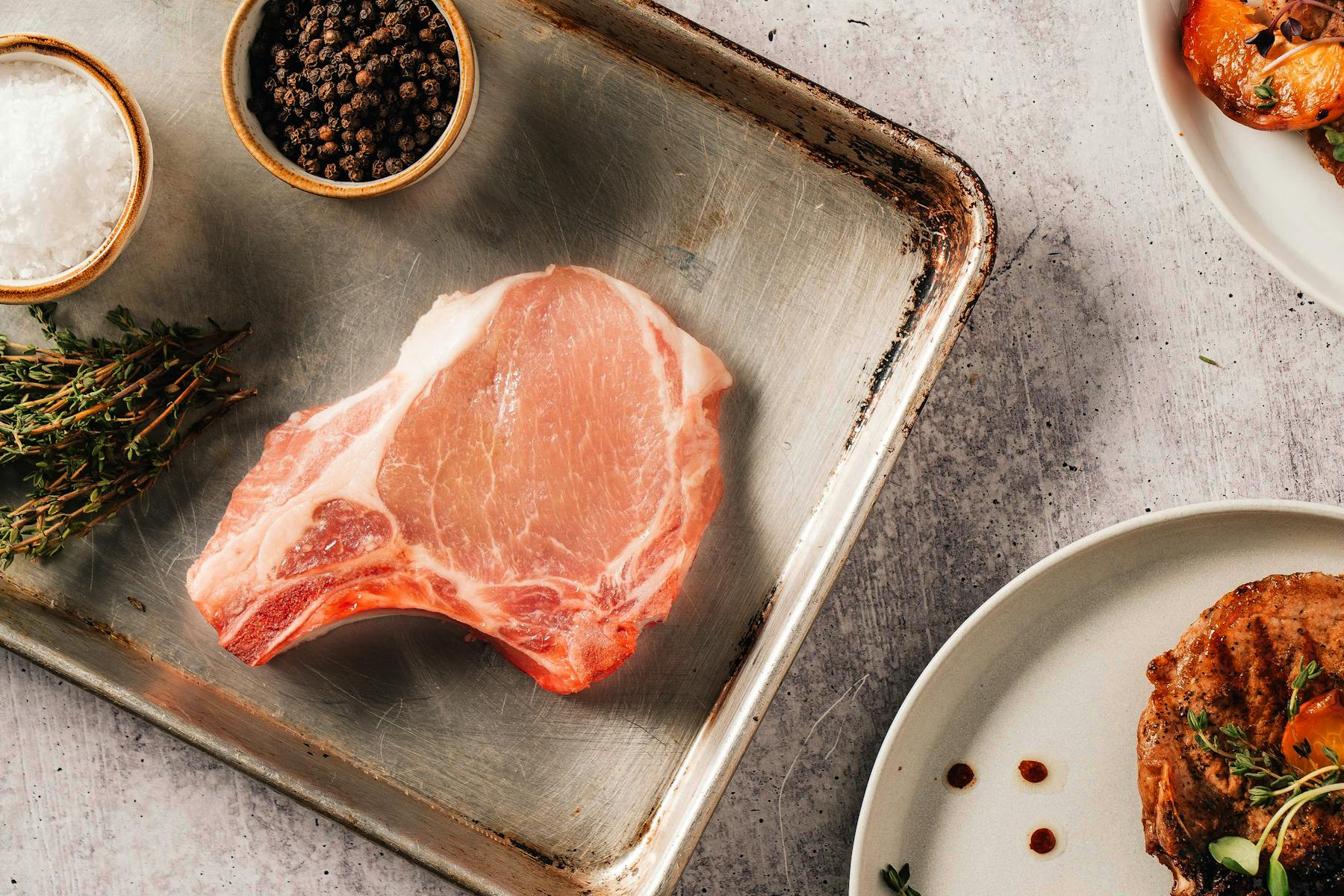
HERITAGE
PORK
The awesomeness of heritage breeds
Before factory farms became the norm for U.S. pork production -- and with them, dry, bland-tasting meat -- heritage breeds abounded on small farms. Today, a movement of small-scale pork producers around the country is working to save heritage breeds, while also giving eaters tastier, richer meat. Heritage breeds range in flavor from Berkshire on the one end, known for being tender and rich in fat, to Red Wattle on the other, a rare, flavorful variety bred by New Calendonians and later New Orleaners to star in Cajun cuisine.
The difference pasture makes
Pasture-raised pork comes from pigs that live outside in fields or forests, rather than confined indoors. The small-scale farmers who choose to go the very labor-intensive route of raising pork on pasture will tell you they do so because it produces more flavorful meat, happier pigs, and a healthier environment. Eaters love pasture-raised pork because its fine marbling —developed over time due to the breed's slow maturation process. This pork is generally higher in vitamin D thanks to the hog's outdoor life in the sunshine, and is richer in monounsaturated fats.
